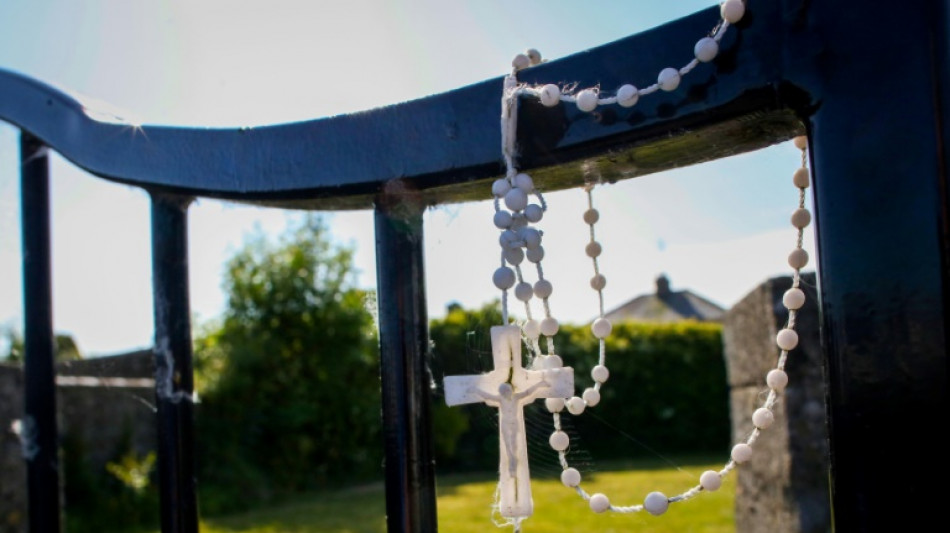

Excavations begin at child mass grave site in Ireland
Excavations begin Monday of an unmarked mass burial site at a former mother and baby home in western Ireland suspected of containing the remains of hundreds of infants and young children.
The planned two-year probe by Irish and foreign experts in Tuam comes more than a decade after an amateur historian first uncovered evidence of a mass grave there.
Subsequent 2016-2017 test excavations found significant quantities of baby remains in a subterranean disused septic tank at the location, which now sits within a housing complex.
Catholic nuns ran a so-called "mother and baby" institution there between 1925 and 1961, housing women who had become pregnant outside of marriage and been shunned by their families.
After giving birth, some children lived in the homes too but many more were given up for adoption under a system that often saw church and state work in tandem.
Oppressive and misogynistic, the institutions -- which operated nationwide, some not closing until as recently as 1998 -- represent a dark chapter in the history of once overwhelmingly Catholic and socially conservative Ireland.
A six-year enquiry sparked by the initial discoveries in Tuam found 56,000 unmarried women and 57,000 children passed through 18 such homes over a 76-year period.
It also concluded that 9,000 children had died in the various state- and Catholic Church-run homes nationwide.
Records unearthed show as many as 796 babies and young children died at the Tuam home over the decades that it operated.
Its grounds have been left largely untouched after the institution was knocked down in 1972 and housing was built there.
- 'A fierce battle' -
"These children were denied every human right in their lifetime, as were their mothers," Anna Corrigan, whose two siblings may have been buried at the Tuam site, told reporters earlier this month.
"And they were denied dignity and respect in death."
Ireland's Office of the Director of Authorised Intervention (ODAIT) will undertake the excavation, alongside experts from Colombia, Spain, Britain, Canada and the United States.
It will involve exhumation, analysis, identification if possible, and re-interment of the remains found, its director Daniel MacSweeney told a recent press conference in Tuam.
It follows local historian Catherine Corless in 2014 producing evidence that the 796 children -- from newborns to a nine-year-old -- had died at the home.
State-issued death certificates she compiled show that various ailments, from tuberculosis and convulsions to measles and whooping cough, were listed as the cause of death.
Corless's research indicated the corpses were likely placed in the disused septic tank discovered in 1975, while prompting the state-backed enquiries that have uncovered the full scandal of the homes.
The ODAIT team was finally appointed in 2023 to lead the Tuam site excavation.
DNA samples have already been collected from around 30 relatives, and this process will be expanded in the coming months to gather as much genetic evidence as possible, according to MacSweeney.
A 2.4-meter-high (7.9 feet) hoarding has been installed around the perimeter of the excavation area, which is also subject to 24-hour security monitoring to ensure its forensic integrity.
"It's been a fierce battle. When I started this nobody wanted to listen. At last we are righting the wrongs," Corless, 71, told AFP in May.
"I was just begging: 'take the babies out of this sewage system and give them the decent Christian burial that they were denied'," she said.
Q.Frank--FFMTZ




